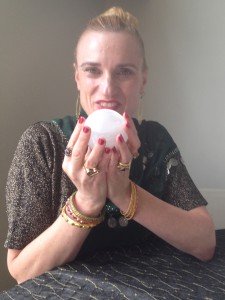How coaching can help you tap into your inner wisdom for empowering career choices
The traditional approach to finding your next role
When people think about their next career move, they often look for roles which they know they can do, and will provide a step along an existing career path. They go through job agencies or look at existing advertised roles, decide to apply, and then enter the formal recruitment process. This is a perfectly valid approach, and is an important part of job-seeking. It can be greatly beneficial when you connect with many expert recruiters we have in New Zealand. However there are drawbacks if you use only this approach to find your next role. The drawbacks are:
- It is passive – a person waits for an advertised role, and allows other people to reject or accept them. This creates feelings of ‘stuckness’ and even powerlessness in some people.
- It is competitive, which adds an extra element of stress during times of change.
- It takes people down a path they are already on, which reduces opportunities to grow and maximise skills – without realising it, people get more of the same, which includes both the things they liked and didn’t like about their past roles.
- It reinforces the artificial separation of work/life.
- It creates confusion in people who are good at many things, as it means they can perform a wide variety of roles. This can put them out of touch with what they truly want as part of a fulfilling career.
In short, it is old fashioned to just wait and apply for roles. It disadvantages you. There is so much more you can do to get the job and life you want, while you are waiting for those roles to come up. This is where support from a coach can help you.
Here’s a new and exciting approach to take control of your career and create the life you want
The services provided by MindMeld Coaching focus on your strengths, and accelerates the job seeking process. This process is for people who:
- Sense there is something more, they can be more do more, and feel happier in their work. If you have a vague sense of dissatisfaction then this might be worth a try.
- Are going through a time of change, and realise this is an opportunity for them to contribute to higher-level goals and making a positive difference.
What underpins this approach
Marcus Buckingham says that people grow most in their area of strength, and when they play to their strengths they can increase their performance by up to 30%. If a strength is something that makes you feel strong, and you love to do it, then you will do it more often. The gifting element of your time and efforts means you are more likely to succeed.
Jamie Smart says that your greatest earning potential is the intersection of what you love to do with the intersection of what you are good at. Some people treat these two things as completely separate, as though work funds life, or work is what they are good at and life is what they love to do. A more useful approach is to notice where people get the feelings of when they are at their best and to follow where those feelings are.
And finally, traditional job seeking is about putting yourself through formal processes. This approach is about using the informal processes of networking to your advantage. Your networks are available to help you find your niche in your role.
How it works
This is a deep dive coaching process divided into three phases. Each phase takes one 90 minute one on one coaching session – three sessions in total, although some clients prefer four so that they can recast their c.v. in the light of their new understandings.
Session one
- Eliciting your values – what’s really important to you in your work.
- Making sense of any diagnostic tools you already have e.g., Myers-Briggs.
- Identifying what you love to do and what you are good at.
Session two
- Identifying your mission – using a guided interview, gaining clarity on what is it you think you are here to do with your life.
- Understanding you at your best – completing a written statement of your best self.
- Exploring decision-making processes to help you decide whether a new role is right for you.
Session three
- Using network analysis to identify sectors and organisations where you can get the feelings of you at your best. Once you have identified those sectors, then you identify networks and people who can help you find the roles you desire.
- Completing a bio – a one pager for you to take to those networking meetings.
Optional session four
- Recasting your c.v., Linked In Profile, and other promotional material in the light of your new understanding of your self, your skills, the contribution you want to make and the organisations you wish to target.
Other options include:
- Action learning groups with three to four people who are in this coaching process to share insights and networks to help each other secure roles.
- The one day Polished Leadership® workshop, designed to boost your own personal power.
What you will get out of the process
- Identification of the sectors and roles that will be the most satisfying to you, and how to find out about these roles.
- A deeper understanding of what is important to you in your career.
- A clear decision-making process to weigh up new career opportunities as they present.
- A one page bio to help you with your networking.
What you won’t get
The sudden urge to run away and join the circus.
What this coaching process is like
Coaching is challenging, because not only will you be required to think in new ways, you will also receive insights into past career choices and experience mini-revelations about what is important to you. While it may look organic, the process is actually very structured, with tasks to complete during the coaching sessions, and also between the coaching sessions. As with all coaching clients, your sessions are confidential to you.
References
- The Nature of Social Collaboration – How work really gets done. Dennis Sandow, Anne Murray Allen, reflections.solonline.org, volume 6, number 3
- Never Eat Alone and other secrets to success one relationship at a time. Keith Ferazzi, 2005.
- Now discover your strengths. Marcus Buckingham and Donald Clifton, 2005.
- Secrets of the Superstars, Salad Seminars audio programme. Jamie Smart, 2010.
- Dr Richard Bolstad: Master Practitioner Manual (2009); Transforming Communications Instructor Training manual (2009)The Training Secrets of NLP (2003).
- Words that change minds. Mastering the language of influence. Second edition. Shelle Rose Charvet. 1997.


